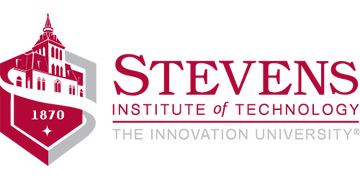
By: MOFD Staff
Now is a great time to pursue a master’s degree in financial engineering! The average salary of a financial engineer with a master’s degree an impressive $97,300 per year. The U.S. Bureau of Labor Statistics reports that employment in business and financial occupations is expected to grow 7% before 2028. That is faster than the average industry!
Of course, it isn’t easy to determine which colleges and universities are best when it comes to where to study for a master’s in financial engineering (which can also be known as financial mathematics, mathematical engineering, quantitative finance, or computational finance). There are many factors to consider, including overall cost, national reputation, and curriculum, to name but a few considerations. That’s why we took on the task of determining the top 30 master’s in financial engineering degree programs, updated for 2020.
Ranking Methodology
To come up with our ranking of the best master’s degrees in financial engineering, we began by finding as many graduate-level financial engineering programs or similar that we could. To narrow our list to the top 30, we used the following points system.
Annual Tuition (Estimate):
Under $70,000 — 2 points
Under $60,000 — 3 points
Under $50,000 — 4 points
Under $40,000 — 5 points
Under $30,000 — 6 points
Under $20,000 — 7 points
Under $10,000 — 8 points
Annual Percentage of 20-Year Net Return on Investment (ROI) (University Wide):
1% and below — 0 points
2-3% — 1 point
4-5% — 2 points
6-7% — 3 points
8-9% — 4 points
10% and above — 5 points
Average Early-Career Salary of Graduates (University Wide):
$50,000 and below — 1 point
$60,000 and below — 2 points
$70,000 and below — 3 points
$80,000 and below — 4 points
$90,000 and below — 5 points
$100,000 and below — 6 points
Above $100,001 — 7 points
Additional Recognition
Master of Financial Engineering — 2 points
Concentration or Focus Only — 1 point
30. University of Chicago
 Master of Science in Financial Mathematics
Master of Science in Financial Mathematics
Points: 9
Tuition: $60,300
Average Starting Salary: $66,000
Annual Percentage of 20-Year Net ROI: 5%
Program Website
The University of Chicago offers a Master of Science in Financial Mathematics that takes approximately 15 months to complete. The rigorous program immerses students in the deep-rooted relationship between mathematics and finance, and prepares them with practical knowledge to succeed in the industry. University of Chicago graduates are highly sought after by top companies, and grads have gone on to work for such companies as:
- Goldman Sachs
- UBS
- JP Morgan.
29. Rensselaer Polytechnic Institute
 Master of Science in Quantitative Finance and Risk Analysis
Master of Science in Quantitative Finance and Risk Analysis
Points: 9
Tuition: $54,000
Average Starting Salary: $71,300
Annual Percentage of 20-Year Net ROI: n/a
School Profile
The Lally School of Management at Rensselaer Polytechnic Institute offers an M.S. degree in Quantitative Finance and Risk Analysis. Students can complete the program full-time in one year, but a part-time option is also available. The program is interdisciplinary in nature and crosses several departments within the institution. The curriculum balances finance with students’ specialized interests. Rensselaer Polytechnic Institute is the oldest technological university in the United States.
28. Stanford University
 Master of Science in Financial Mathematics
Master of Science in Financial Mathematics
Points: 10
Tuition: $52,479
Average Starting Salary: $59,800
Annual Percentage of 20-Year Net ROI: 7%
School Profile
Stanford University offers a top-ranked Master of Science in Financial Mathematics. The 45-unit degree program takes four quarters to complete, and students must finish within three years. To complete the M.S. in financial mathematics, students must pass six required courses, six electives, and either an industrial internship in the Bay Area or a selection of additional coursework.
27. Boston University
 Master of Science in Mathematical Finance & Financial Technology
Master of Science in Mathematical Finance & Financial Technology
Points: 10
Tuition: $54,700
Average Starting Salary: $62,000
Annual Percentage of 20-Year Net ROI: 5%
School Profile
The M.S. in Mathematical Finance & Financial Technology program at Boston University can be completed in just three semesters. Students are also given the opportunity to work in an internship or on an industry-sponsored project during the summer. The program integrates principles of math with theory and practice of finance. Impressively, Boston University graduate students have gone on to work for such companies as:
- Morgan Stanley
- Fidelity Investments
- Barclays Capital.
26. New York University
 Master of Science in Financial Engineering
Master of Science in Financial Engineering
Points: 11
Tuition: $33,408
Average Starting Salary: $56,000
Annual Percentage of 20-Year Net ROI: 5%
School Profile
NYU’s Master of Science in Financial Engineering is designed to train students “to engineer the future of finance and transform financial theory into practice.” The 33-credit degree program takes three semesters to complete, though part-time options are also available. Students must complete five core courses, 13.5 credits of electives, an applied lab, and a capstone experience. Students may also choose to focus in one of the following areas:
- corporate finance and financial markets
- computational finance
- risk finance
- technology and algorithmic finance.
25. Fordham University
 Master of Science in Quantitative Finance
Master of Science in Quantitative Finance
Points: 11
Tuition: $34,608
Average Starting Salary: $59,700
Annual Percentage of 20-Year Net ROI: 5%
School Profile
The Quantitative Finance program at Fordham University is designed to set students up for success in the industry. Over the course of the 18-24 months it takes to complete the degree program, students will:
- lunch with hedge fund managers at networking events
- take a seminar from a stochastic modeling expert
- hand their resume right to a senior quant trader
An impressive 85-90% of Fordham University’s quantitative finance grads find jobs within three months of graduation, and 100% have jobs within six months.
24. University of Southern California
 Master of Science in Financial Engineering
Master of Science in Financial Engineering
Points: 11
Tuition: $46,272
Average Starting Salary: $64,500
Annual Percentage of 20-Year Net ROI: 5%
School Profile
The University of Southern California Viterbi School of Engineering offers a master’s in Financial Engineering. Students can complete the program taking between 29 and 31 credit hours of coursework. The program is also offered online. Both programs are extremely selective, and offer the same high-quality education opportunity that USC is known for.
23. University of Notre Dame
 Master of Science in Applied and Computational Mathematics and Statistics
Master of Science in Applied and Computational Mathematics and Statistics
Points: 11
Tuition: $54,908
Average Starting Salary: $67,000
Annual Percentage of 20-Year Net ROI: $6%
School Profile
University of Notre Dame’s Department of Applied and Computational Mathematics and Statistics offers a research master’s program that is designed to prepare students for a doctoral degree. The 30-unit program requires:
- a series of courses
- a written examination
- a project
- an oral examination
Notre Dame also offers a professional master’s program in which students may choose to concentrate in either applied mathematics or computational science. However, the professional program is only offered select semesters.
22. Johns Hopkins University
 Master of Science in Financial Mathematics
Master of Science in Financial Mathematics
Points: 11
Tuition: $55,350
Average Starting Salary: $67,200
Annual Percentage of 20-Year Net ROI: 6%
School Profile
The Financial Mathematics program at Johns Hopkins University emphasizes computing and effective communication as key skills and abilities that every graduate needs to possess. Students are able to complete their degree in three semesters beginning in late summer. To gain real world experience, students complete a summer internship before their last semester.
21. Princeton University
 Master in Finance (M.Fin.)
Master in Finance (M.Fin.)
Points: 12
Tuition: $51,870
Average Starting Salary: $76,800
Annual Percentage of 20-Year Net ROI: 8%
School Profile
Though Princeton University offers a Master in Finance degree, the program is unique in that it places a huge emphasis on financial engineering and computational methods. Students are expected to pursue the degree full-time, and should finish in about four semesters. A summer internship to gain practical experience is required between years one and two.
20. Columbia University
 Master of Science in Financial Engineering
Master of Science in Financial Engineering
Points: 13
Tuition: $47,600
Average Starting Salary: $73,100
Annual Percentage of 20-Year Net ROI: 6%
School Profile
The Financial Engineering program at Columbia University is one of the most prestigious in the field. The program has a 100% job placement rate, and ensures graduates are able to apply their education immediately after graduation. Students attend the program full-time and complete it in two semesters. An impressive 51% of summer internships are converted into full-time offers.
19. Carnegie Mellon University
 Master of Science in Computational Finance
Master of Science in Computational Finance
Points: 13
Tuition: $45,037
Average Starting Salary: $75,900
Annual Percentage of 20-Year Net ROI: 7%
School Profile
The Computational Finance degree program at Carnegie Mellon University can be completed in three semesters. Students can participate full-time, part-time, or online via distance learning. The program is fully integrated among four Carnegie Mellon Colleges, including:
- business
- math
- statistics
- IT
Impressively, 99% of full-time students are accepted into a summer internship, and 86% accept full-time positions within three months of graduation.
18. University of Connecticut
 Master of Science in Applied Financial Mathematics
Master of Science in Applied Financial Mathematics
Points: 14
Tuition: $16,300 (Connecticut residents), $38,212 (out of state)
Average Starting Salary: $44,700
Annual Percentage of a 20-Year Net ROI: 9%
School Profile
University of Connecticut offers a Master’s in Applied Financial Mathematics, a joint venture among the departments of mathematics, finance, and statistics. To fully earn the degree, students must complete at least 30 credits of required courses and electives, an approved exit project, and a field study internship. For those who prefer an actuarial science concentration in applied financial mathematics, UConn also offers an M.S. in Financial Mathematics – Actuarial Science.
17. Illinois Institute of Technology
 Master of Mathematical Finance
Master of Mathematical Finance
Points: 14
Tuition: $29,487
Average Starting Salary: $64,600
Annual Percentage of a 20-Year Net ROI: 6%
School Profile
The Illinois Institute of Technology offers a Mathematical Finance degree in partnership with the Department of Applied Mathematics and the Stuart School of Business. The typical full-time plan of study allows students to complete the program over four semesters, including a summer internship. The program requires a minimum of 11 courses be completed to earn the degree, but no thesis is required.
16. Lehigh University
 Master of Science in Financial Engineering
Master of Science in Financial Engineering
Points: 14
Tuition: $27,000
Average Starting Salary: $69,500
Annual Percentage of a 20-Year Net ROI: 7%
School Profile
Lehigh University’s Master of Science in Financial Engineering degree is a cutting edge program designed to provide a graduate student with a solid foundation in advanced finance and quantitative financial analysis. The 30-credit degree takes one year to complete, and includes a capstone practicum project with a financial services firm. Graduates of this program go on to work with top risk management groups, hedge fund firms, and data analytics companies.
15. Cornell University
 Master in Engineering with Financial Concentration
Master in Engineering with Financial Concentration
Points: 14
Tuition: $29,500
Average Starting Salary: $70,100
Annual Percentage of a 20-Year Net ROI: 7%
School Profile
Cornell University offers a financial engineering concentration of its Master in Engineering degree. The career-oriented and application-focused program can be completed in three semesters. This includes a summer internship completed after the student’s first year. Cornell reports that 100% of its graduates are placed in a job within six months.
14. University of Minnesota
 Master of Financial Mathematics
Master of Financial Mathematics
Points: 15
Tuition: $17,580 (Minnesota residents), $27,204 (out of state)
Average Starting Salary: $57,200
Annual Percentage of a 20-Year Net ROI: 9%
School Profile
The University of Minnesota offers a Financial Mathematics program that accommodates working professionals by offering courses in the evening. This is a coursework-only program. Most students complete the master’s degree in two years years, though it can also be completed in one year. Students may also complete a program emphasis which allows for the opportunity to take coursework in related areas of interest. Eighty-five percent of graduates are employed in a field related to financial engineering.
13. Rutgers University
 Master of Quantitative Finance
Master of Quantitative Finance
Points: 15
Tuition: $17,736 (New Jersey residents), $30,144 (out of state)
Average Starting Salary: $59,800
Annual Percentage of a 20-Year Net ROI: 9%
School Profile
Rutgers University’s Master of Quantitative Finance is a unique program which prepares students for employment in the specialized field of financial engineering. The 45-unit program may be taken on either a full-time or part-time basis, and can be finished in three semesters or three years. Students must complete seven core courses and a series of electives, including a Career Management class.
12. Stevens Institute of Technology
 Master’s in Financial Engineering
Master’s in Financial Engineering
Points: 15
Tuition: $36,680
Average Starting Salary: $75,100
Annual Percentage of a 20-Year Net ROI: 8%
School Profile
The Stevens Institute of Technology offers a MS in Financial Engineering degree. The degree consists of six core courses, and 3-4 classes in the student’s chosen concentration. This degree program is available part-time or full-time on campus and online. Stevens Institute of Technology is home to the state-of-the-art Hanlon Financial Systems Lab, which contains a trading room and Bloomberg terminals. Students can also participate in the Financial Engineering Seminar Series where they can hear from leading professionals in the field about current research and industry trends.
11. Florida State University
 Master of Science in Financial Mathematics
Master of Science in Financial Mathematics
Points: 16
Tuition: $9,684 (Florida residents), $24,116 (out of state)
Average Starting Salary: $52,100
Annual Percentage of a 20-Year Net ROI: 8%
School Profile
The Master of Science in Financial Mathematics degree program at Florida State University takes approximately two years to complete. Students may choose from three tracks:
- Quantitative Finance (preparation for a PhD)
- Quantitative Finance (ending with a master’s degree)
- Actuarial Science
Regardless of track choice, the degree program consists of 33 units, or 11 courses.
10. University of North Carolina at Charlotte
 Master of Science in Mathematical Finance
Master of Science in Mathematical Finance
Points: 16
Tuition: $4,337 (North Carolina residents), $17,771 (out of state)
Average Starting Salary: $52,500
Annual Percentage of a 20-Year Net ROI: 9%
School Profile
UNC Charlotte’s M.S. in Mathematical Finance degree program prepares students for careers in finance. It’s a joint venture between the Department of Mathematics and Statistics and the Belk College of Business. The mathematical finance degree may be started in either fall or spring. A benefit of completing one’s degree at UNC Charlotte is the career placement program. Graduates are currently working with top companies in:
- investment banking
- software development
- risk management
- financial modeling, among other industries.
9. University of Illinois at Urbana-Champaign
 Master of Science in Financial Engineering
Master of Science in Financial Engineering
Points: 16
Tuition: $14,997 (Illinois residents), $28,404 (out of state)
Average Starting Salary: $62,600
Annual Percentage of a 20-Year Net ROI: 9%
School Profile
The Financial Engineering program at the University of Illinois Urbana-Champaign is a joint program between the College of Engineering and the College of Business. Students may begin the degree in August of each year, and it takes 15-24 months to complete. Approximately 90% of graduates will find employment within six months of graduation. Students complete a corporate-sponsored practicum course before graduation to gain real world experience in financial engineering and risk management problems.
8. University of Michigan
 Master of Science in Quantitative Finance and Risk Management
Master of Science in Quantitative Finance and Risk Management
Points: 16
Tuition: $23,890 (Michigan residents), $48,204 (out of state)
Average Starting Salary: $63,500
Annual Percentage of a 20-Year Net ROI: 10%
School Profile
University of Michigan’s Master of Science in Quantitative Finance and Risk Management prepares students to assist in the solution of real-world financial problems as:
- quantitative analysts
- financial engineers
- traders
- risk managers
The degree is a joint venture between the departments of statistics and mathematics. Students complete the 36-unit degree program by working through four sequences of intense coursework over, typically, three terms. Eighty-six percent of graduates are employed in the financial field within six months of graduation.
7. University of California-Los Angeles
 Master of Financial Engineering
Master of Financial Engineering
Points: 16
Tuition: $11,442 (California residents), $26,544 (out of state)
Average Starting Salary: $63,900
Annual Percentage of a 20-Year Net ROI: 9%
School Profile
The Financial Engineering program at UCLA is offered as a full-time program which can be completed in only 15 months. The curriculum is based on the business school model. It includes a corporate-sponsored Applied Finance Program and a summer internship prior to graduation. Currently, 94% of graduates find full-time employment within six months of graduation.
6. Baruch College (City University of New York)
 Master of Financial Engineering
Master of Financial Engineering
Points: 16
Tuition: $19,093 (New York residents), $28,263 (out of state)
Average Starting Salary: $65,000
Annual Percentage of a 20-Year Net ROI: 9%
School Profile
The Financial Engineering program at Baruch College in New York boasts a near 100% employment placement rate for new graduates with an average starting salary of $125,000! Students complete 12 three-credit courses, and may pursue their degree full-time or part-time. All courses are offered in the evening to allow those already working in the field to meet their educational goals.
5. North Carolina State University
 Master of Financial Mathematics
Master of Financial Mathematics
Points: 17
Tuition: $9,095 (North Carolina residents), $26,421 (out of state)
Average Starting Salary: $57,300
Annual Percentage of a 20-Year Net ROI: 10%
School Profile
The Financial Mathematics program at North Carolina State University is an 18-month program if you’re a full-time student. The program is a joint venture across five departments and four colleges. Students typically start in the fall (there are exceptions), and may pursue full or part-time study. 100% of all graduates find placement in the field after completing their degree.
4. Stony Brook University
 Master of Science in Quantitative Finance
Master of Science in Quantitative Finance
Points: 17
Tuition: $11,310 (New York residents), $23,200 (out of state)
Average Starting Salary: $60,200
Annual Percentage of a 20-Year Net ROI: 10%
School Profile
The Quantitative Finance Track at Stony Brook University is aimed at producing applied mathematicians who specialize in finance. Students can pursue their degree on a full-time or part-time basis, although no formal part-time program has been established. Uniquely, Stony Brook’s degree program is designed for students to move right into a PhD program if they wish. Internships are available and encouraged.
3. University of Washington
 Master of Science in Computational Finance and Risk Management
Master of Science in Computational Finance and Risk Management
Points: 17
Tuition: $18,198 (Washington residents), $32,439 (out of state)
Average Starting Salary: $61,900
Annual Percentage of a 20-Year Net ROI: 10%
School Profile
The University of Washington Computational Finance and Risk Management program is available for full or part-time study, on campus or online. The 42-credit program consists of a series of core requirements and 16 credits of electives. Washington’s MS in computation finance is highly competitive, and can be completed in about 18 months if tackled full time.
2. University of California-Berkeley
 Master of Financial Engineering
Master of Financial Engineering
Points: 18
Tuition: $11,442 (California residents), $26,544 (out of state)
Average Starting Salary: $72,100
Annual Percentage of a 20-Year Net ROI: 10%
School Profile
U.C. Berkeley offers a top-ranked Master of Financial Engineering degree. Nearly 100% of graduates seeking full-time employment after graduation are placed within the first year. The financial engineering program is a 12-month, full-time program. A 10-week mid-program internship is also part of the curriculum, as is a capstone project in applied finance.
1. Georgia Institute of Technology
 Master of Science in Quantitative and Computational Finance
Master of Science in Quantitative and Computational Finance
Points: 18
Tuition: $14,064 (Georgia residents), $29,140 (out of state)
Average Starting Salary: $72,700
Annual Percentage of a 20-Year Net ROI: 12%
School Profile
Georgia Tech’s Quantitative and Computational Finance program is interdisciplinary among :
- the Scheller College of Business
- the H. Milton Stewart School of Industrial and Systems Engineering
- the School of Mathematics
Students can complete their studies full-time or part-time. Full-time students can finish in three semesters. An impressive 96% of graduates are employed within three months, and almost all complete a summer internship.
Related Resources:
- 50 Best Online Master of Finance Degree Programs
- 50 Great Small Colleges for an Accounting and Finance Degree
- Top 10 MBAs in Accounting Online
A high resolution version of the award badge can be found here. You are welcome to use it for your publications.
